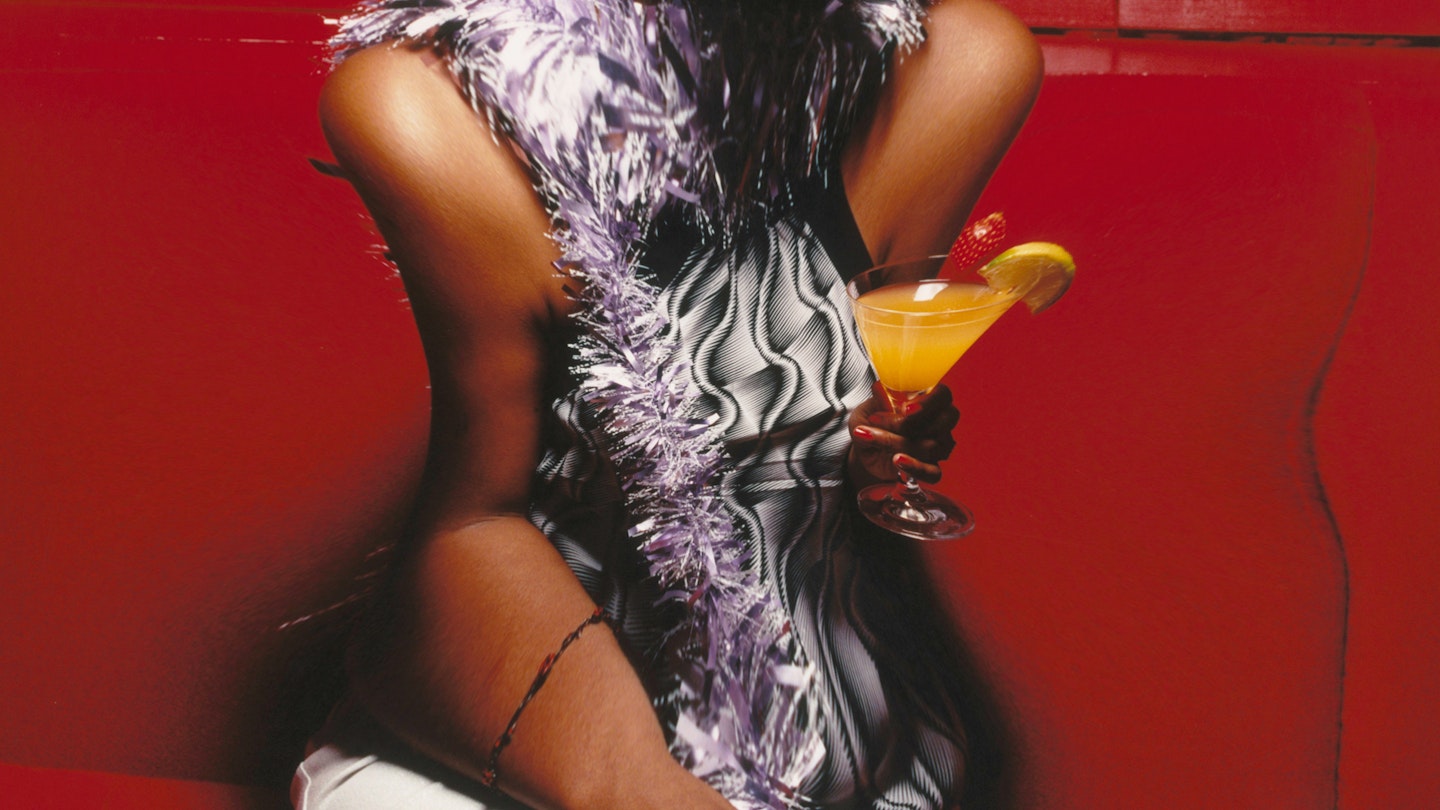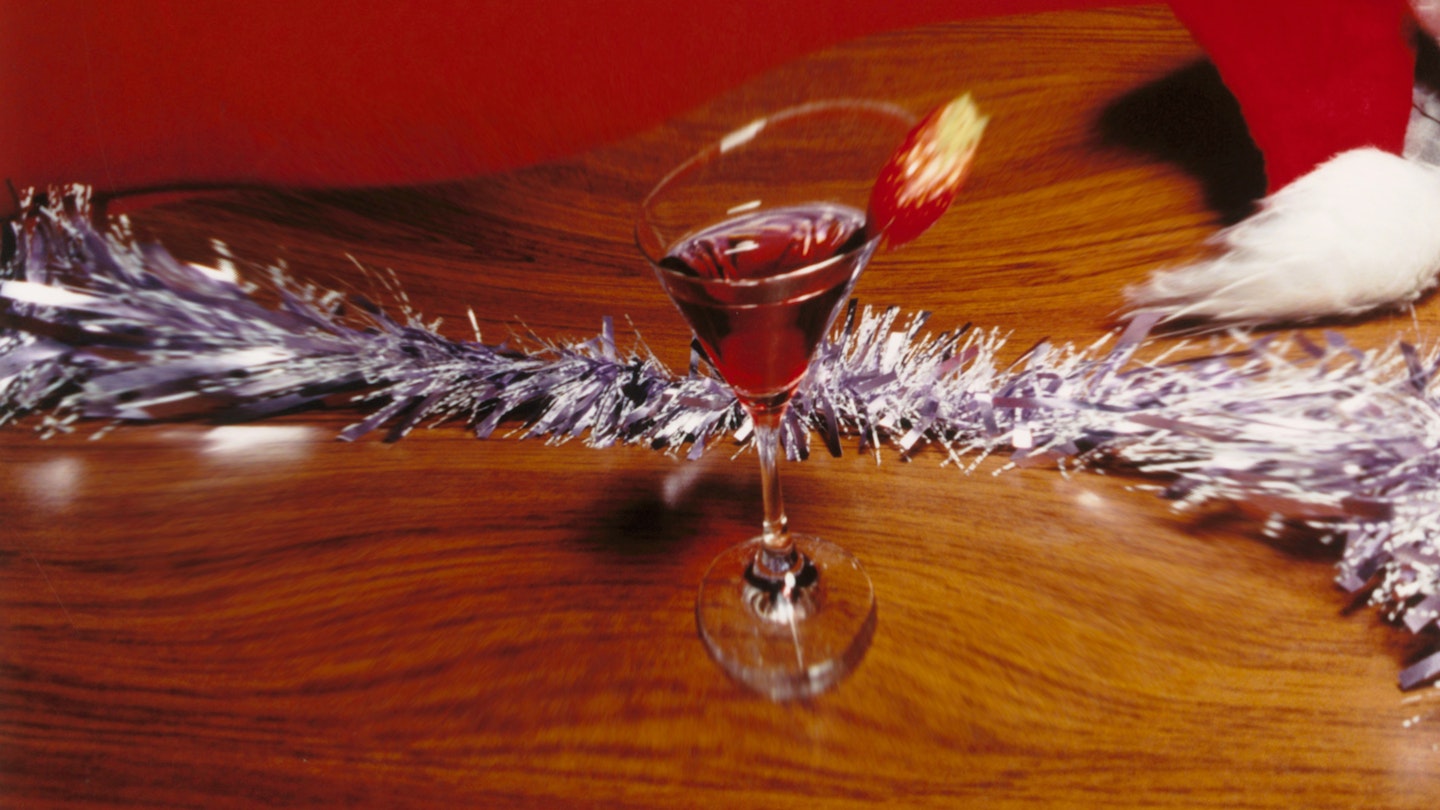Two weeks into December and the festive party season is now well and truly upon us. I can barely go 48 hours at a time without someone twisting my arm into a mulled wine and mince pie, a gratuitous glass of bubbly 'just because it's Christmas,' or a festive spiced gin. It's the most wonderful time of the year – but, for me at least, it also always comes with just a twinge of anxiety.
'Girls beware,' tweeted actor Robert Lindsay just four days before my first Christmas party of the year . 'WARNING! A friends [sic] daughter was recently approached by 3 men outside a London club and a substance blown into her face, in her shock she inhaled… It was a date rape drug. She was saved but girls beware. Friends came to her aid but within seconds she lost all her senses and couldn't remember a thing.'

His words have reignited speculation about the use of scopolamine, or 'Devil's Breath' – a notorious, and frankly terrifying-sounding drug originating in Colombia, which is known for being blown in victims' faces. Described as 'the world's scariest drug,' Devil's Breath reportedly removes free will, wipes memories, and leaves victims in a 'zombie-like' state.
Although stories abound about scopolamine being used to commit thousands of robberies and sexual assaults across Colombia each year, it's virtually unheard of in Europe.In recent years, though, the drug's been linked to cases of robbery in Paris and the rape of two British women on Spain's Costa del Sol, so Lindsay's tweets have understandably triggered fears that the drug may have made its way onto British streets.
But just how scared should we be? Well, when it comes to Devil's Breath, maybe not so much. 'It's probably an urban myth,' says Valerie Curran, a Professor of Psychopharamacology from University College London, who points to a letter, published in the Journal of The Chartered Society of Forensic Sciences.
"No instances of scopolamine abuse in the European Union have been reported to the European Monitoring Centre for Drugs and Drug Addiction (EMCDDA)," it says. "A report from Spain… described the clinical and legal implications of 'submission agents'. That study included 170 presumed victims of sexual aggression; all were tested for scopolamine and all were negative."
The Metropolitan Police Service – to whom Lindsay's tweets were referred – also confirmed to The Debrief that they have not, to date, made any seizures of the drug. Actually, the reality is scarily simple: the most common drug used to spike drinks is alcohol, leaving victims open to the victim-blaming accusation that they'd "just had too much to drink".
In the UK there are no reliable figures to tell us exactly how many victims of rape and sexual offences had been drugged prior to the attack, but a 2014 survey by ITV found that one in ten people have had their drink spiked. Victims are typically spiked with either alcohol or more traditional date rape drugs, such as Rohypnol, Valium or ketamine.
'I had my drink spiked on a spontaneous night out in London with friends,' says 25-year-old Rosie*. 'At one point I went to the toilet and, instead of leaving my drink with my friends, I took it into the busy toilets and just left my drink by the sink. About 20 minutes later, I felt a headache coming on and felt quite nauseous,' she explains.
'I can recall walking back into the toilet, locking the door behind me, and then I have no recollection until the following morning – but my friends have told me they eventually found me slumped over the toilet completely unconscious, with over 40 missed calls on my phone,' she adds.
Fortunately, Rosie's friends realised something wasn't right, searched the club for her, and then took her home, but the effects were horrifying. 'I had never felt so poorly and slept for the next 24 hours, only waking up to sip water,' she says.
'I have no idea what they used, but it took me at least a week to feel 'human' again. I found it terrifying how, if I hadn't found my way to the toilets, anything could have happened to me,' Rosie adds. 'This happened over 18 months ago, and it put me off going out for a very long time! I haven't let a drink leave my hand on a night out since.'
Part of the problem when it comes to drink spiking is that the true extent of the problem is largely unknown. According to figures from the Office for National Statistics in 2016 there were 35,699 reported rape offences and 70,399 sexual offences reported in the United Kingdom, this was an increase on the previous year but it is not known how many of those involved date rape drugs.
Why don’t we have the figures? The truth is that people who have their drinks spiked don’t tend to speak out, they often victim blame themselves because society encourages women who go out and drink to feel shame, leading those affected to doubt whether they were actually spiked at all. See this damaging Daily Mail headline: ‘Date-rape drug? No dear, you just had too much to drink’.
Krystal, 29, had a similar experience to Rosie. She was out drinking with a friend when, suddenly, they both blacked out, started vomiting and what she describes as "blind calling" anyone in her phone book. The two friends were separated and do not remember leaving the bar they were in.
"The following two or three days I felt really awful, really low, anxious and panicked" she explains, "I don’t do drugs, so it’s difficult to compare it to anything but it felt like what people describe a come down as being like. I was really embarrassed because I felt like I had let it happen even though I hadn’t done anything". Did she call the bar? Did she report it to the police? "You know it’s not your fault but you do feel like that" she says, "that’s why we didn’t call the bar, tell them or report it to the police because we felt like people would blame it on us. You feel that, as a woman, you're supposed be aware of these things, but of course it’s ok that we were drunk and that doesn’t make it our fault. I’m in my late 20s, I know what I’m like when I’m drunk. I don’t throw up. I know there was something else at play but, still, the prospect of being quizzed or blamed by the bar or by police makes you not want to talk about it’."
The stigma around drinking spiking leads to a lack of statistics which, in turn, means that the issue isn’t taken as seriously as it should be and that those responsible often don't face any consequences. Of course, the risks shouldn't be overstated, and it definitely shouldn't put you off getting your festive dancing shoes on, but, it probably isn't powder being blown in your face that you need to worry about.
The expert advice on drink spiking is pretty straightforward – don't let your drink out of your sight, report anything suspicious, look after your mates, and seek medical attention if something feels wrong. Frankly it sucks that the worry even has to cross our minds, but here's to a safe and very merry Christmas.
*Name has been changed
**Victim Support provides specialist practical and emotional support to victims of all crime, including sexual assault, whether or not the incident has been reported to the police. Anyone seeking help can contact the charity’s 24/7 Supportline on 0808 16 89 111 or via the **websitewebsite
You might also be interested in:
Is This Pocket Date Rape Drug Tester A Genius Or Terrible Idea?
Follow Sarah on Twitter @SarahGraham7
This article originally appeared on The Debrief.
